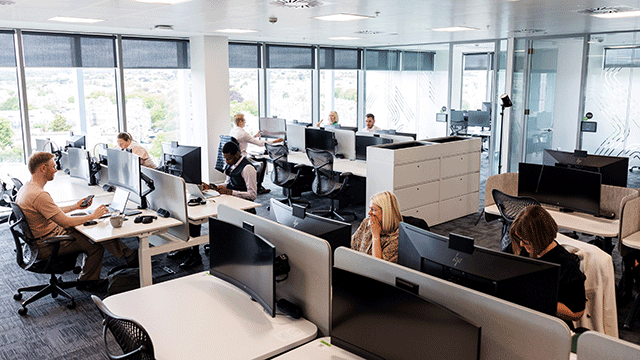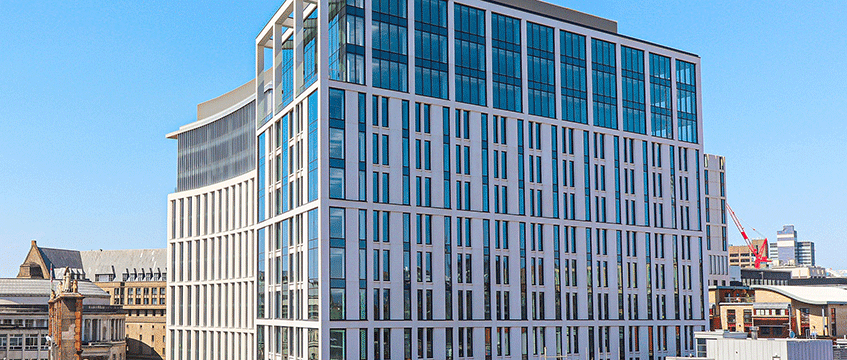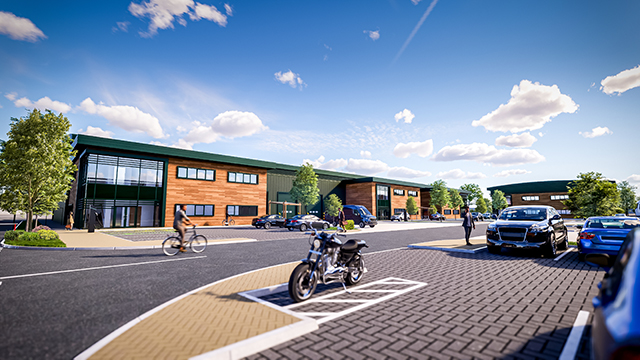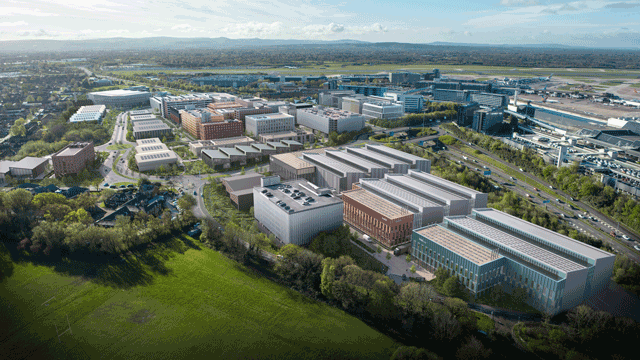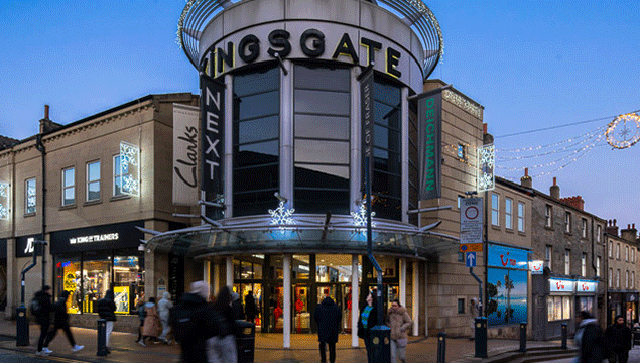Grant Thornton’s managing partner for the North West has said the office will remain “the centre of gravity” for the advisory firm despite hybrid working, as its Manchester staff settle into its new workplace.
The Manchester team has just moved to the city’s Landmark development, ending an office hunt that lasted for much of the Covid-19 pandemic and evolved along changes to working practices.
The advisory firm took 14,000 sq ft on the 11th floor of the Barings-owned building on Oxford Road, downsizing from close to 28,000 sq ft across three floors at its former regional hub at Hardman Square in Spinningfields.
Rethinking plans
Carl Williams, managing partner for the North West, told EG that the company had started looking for a new office in January 2020, ahead of a lease expiry just before Christmas this year. Before the pandemic, Grant Thornton had expected to take a bigger office, perhaps moving staff out of London into larger regional hubs. When Covid hit, plans were rethought quickly.
“Thankfully we hadn’t committed to anything,” Williams says now. “To be honest, we couldn’t find anything that really ticked our boxes at that point, so we didn’t sign anything. And then the pandemic hit and it’s probably accelerated our thinking three or five years within a matter of months in terms of how people will work.”
Staff are being given flexibility over how, when and where they work, and Williams noted that the Omicron Covid-19 strain “puts a little bit of a question mark” over how regularly team members will be in the office. “We probably wouldn’t expect people to be in the office five days a week, but very few would be in none,” he adds. “We’re almost saying [between] one and four [days] are your parameters going forward.”
The new office space is signed on a 15-year lease with a 10-year break, which Williams says gives the firm a chance to rethink its approach if the world “changes massively like it has done in the past two years”.
Despite switching to hybrid working, Williams believes that “the office is still the centre of gravity” for a business such as Grant Thornton.
“It’s a place where we all come together for coaching our new graduates and school leavers so that they develop to be amazing from getting together, thinking of ideas about clients, problem-solving, socialising,” he says.
Williams adds: “That human interaction that we all need is really important… What I found in the past few weeks in the new space is that it gives me incredible energy the next day when I’m home, because I’ve had proper human interaction rather than virtual.”
New lessons
Like other companies, Grant Thornton is learning on the job. As Williams tells his teams: “There isn’t an instruction manual to this.”
But Manchester and the firm’s experiences in the Landmark are likely to influence future decisions.
“What we are looking at is our entire property portfolio as lease events happen, or as breaks or moves or potential new offices come along,” he adds. “Manchester was the first one post-pandemic that we moved of any size.
“There’s a chance we’ll end up with more small offices rather than a few super offices. For example, we don’t currently have a full-scale office somewhere like Newcastle, but I think in the pursuit of attracting and retaining talent, it might be that having a full-service physical location somewhere might help us capture and retain talent in the business.”
To send feedback, e-mail evelina.grecenko@eg.co.uk or tweet @EGPropertyNews






